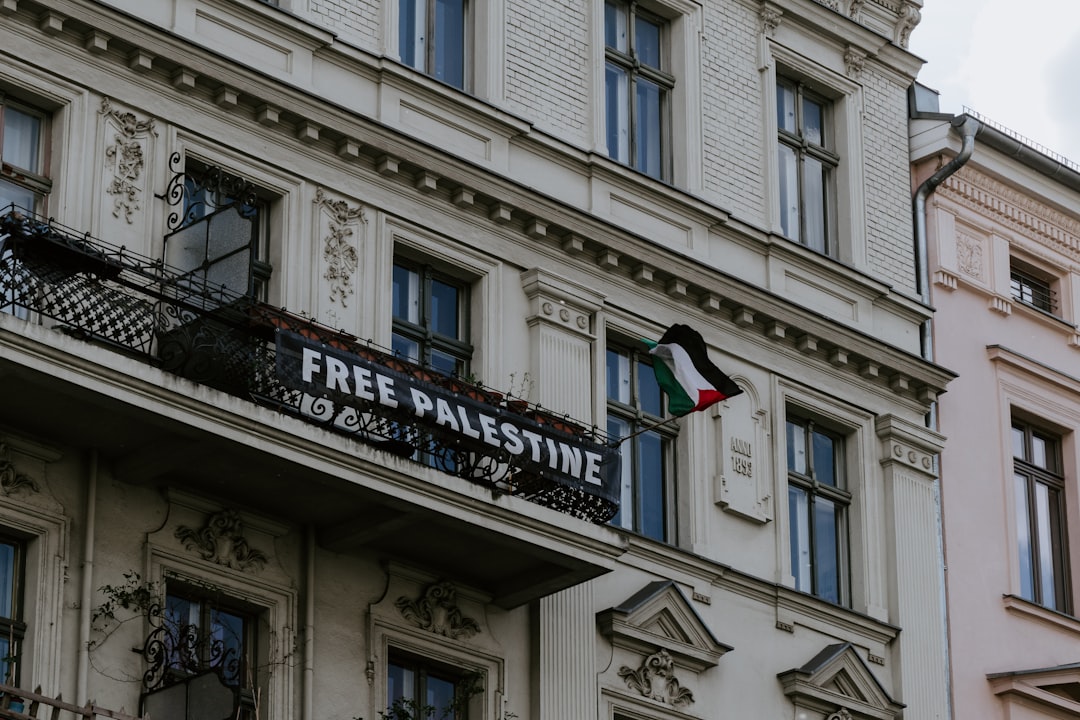How the Gaza war could drive a wedge between Germans and immigrants
German history means that it has a vastly different attitude to Israel to the immigrants who have arrived from the Arab world in recent years. Will this play into the AfD's hands?

Dear Reader,
The coming weeks and months are set to stress test societal harmony in Germany’s new, multicultural society like no other events since the mass arrivals of refugees started a decade ago.
Friendships at work and in the neighbourhood, built up over years, are going to be put under immense strain as the gulf in opinion between ethnic Germans and Arab migrants on the topic of Israel becomes apparent.
I’ve already read vexed headlines about “completely failed integration” and the “grave mistake” of letting in so many refugees from the Arab world in light of the fact that immigrants have been ripping down Israeli flags and protesting in support of Palestine in the wake of the massacre of over a thousand Jews at the weekend.
The far-Right Alternative for Germany (AfD) party sense that the tectonic plates of German politics are shifting in their favour.
Suddenly, the dividing line of polite public opinion is no longer on the question of where one stands on immigration but where one stands on Israel.
On that issue, mainstream political parties are singing from the same hymn book as the AfD. Cue the highly unusual scene of AfD parliamentarians applauding Olaf Scholz in the Bundestag yesterday.
There is no denying it. The ambivalence among many Middle Eastern immigrants to the slaughter that took place in southern Israel is real and widespread.
Güner Balci, integration commissioner in the Berlin district of Neukölln, has said that “broad sections” of her district’s Arab population “harbour sympathies for terrorists.” Speaking to Der Spiegel, she advised Jews not to show outward signs of their faith in the district in order to avoid becoming the target of attack.
In Germany of all places, indifference to the largest murder of Jews since the Holocaust - and the open anti-Semitism it has unleashed - is naturally being met with horror and outrage.
But the events unfolding in and around Gaza are also revealing an anger among Arab migrants at what they see as German double standards when it comes to human rights.
When Arab migrants point out that journalists don't shove a microphone under the nose of members of the Jewish community every time the Israeli army flattens an apartment block in Gaza, they have a point.
The danger is that this moment proves to be a turning point at which Germans and Arab immigrants turn away from each other for good and retreat into their own parallel universes.
For some Germans, already uneasy at current levels of immigration, the issue provides an expedient pretext for claiming that the country is überfremdet. For Arab migrants, every signal of German solidarity with Israel is being interpreted as a provocation aimed at them.
If things continue as they are going, it is only a matter of time before the CDU's Brandmauer to the far-Right falls as they seek an ever harder line on forcing immigrants to accept German culture and morals in their entirety.
There are no doubt already many people inside the CDU itching to start some form of cooperation with the AfD, as they increasingly regret the migration policies that their own party championed under Angela Merkel. Polling published this week shows that half of Germans now support coalition building with the AfD at the state level.
The knee jerk reaction among Germans will be to try to prescribe what exactly Arab immigrants should think about the politics of their own region.
I’ve already seen a suggestion in one respected newspaper that Palestinian youth should be taught in school that their forefathers were Nazi collaborators.
Meanwhile, public broadcaster BR has cut all ties to the journalist Malcolm Ohanwe, whose mother is Palestinian, over ill-advised comments he made on Twitter at the weekend.
Solutions obviously aren’t simple, but it doesn’t seem like these are the types of policies that will prevent the ghetto-isation of German society.



Great article. Unfortunately those Arab immigrants in Neuköln given as an example above are already being used to characterize all immigrants (and anyone with a migration background). Since many of your readers are likely expats or immigrants of one type or another, are there any practical steps that can practically help ... differentiate that point?
Germany needs to balance its demographics, and even if the birthrate changed massively tomorrow, that wouldn't have any effects for decades. Angry voters, particularly pensioners, forget that someone who's not them will have to pay their pensions and health care (aside from the personnel simply required to work in the health sector, which is frankly not in great shape now and will shortly need significant cash infusions).
I think I misunderstand German conservative politics - how is this not the center point of the discussion? All of these other points follow logically from the central problem.